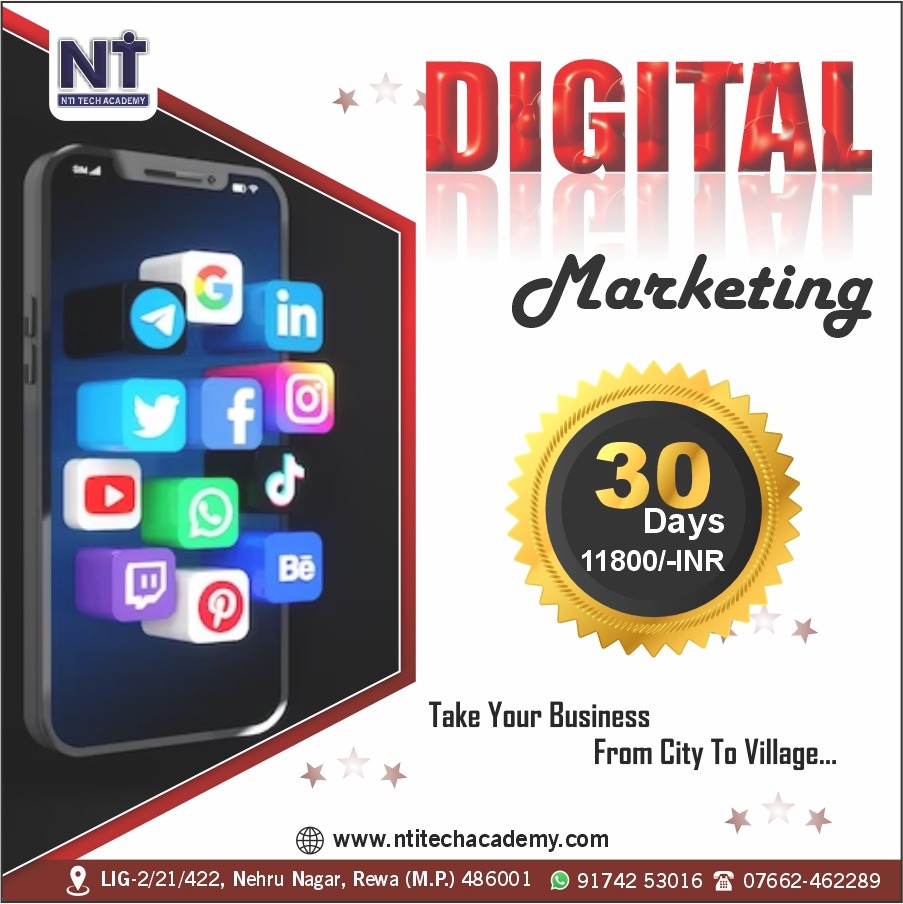
Digital Marketing Trends
AI and Machine Learning in Marketing
- AI-Driven Tools: Artificial intelligence (AI) is revolutionizing marketing by enabling tools like chatbots, personalized content recommendations, and customer data analysis. AI helps optimize customer journeys and improve efficiency.
- AI-Powered Analytics: Tools like Google Analytics 4 (GA4) use machine learning to predict customer behavior and provide valuable insights for data-driven decisions.
2. Voice Search Optimization
- With the increasing use of voice-activated devices like Amazon Alexa and Google Assistant, voice search optimization is crucial. Marketers are now focusing on optimizing content for natural language queries, often in the form of questions.
- Voice SEO: Structured data, conversational keywords, and featured snippets are critical to ranking in voice search results.
3. Video Marketing & Short-Form Content
- Short-Form Videos: Platforms like TikTok, Instagram Reels, and YouTube Shorts are dominating video marketing. Short, engaging, and shareable content is preferred by users.
- Live Video: Live streaming on platforms like Facebook, Instagram, and LinkedIn continues to grow, offering real-time engagement and interaction with audiences.
4. Personalization
- Tailored Experiences: Personalized marketing, where users receive custom content based on their behaviors, is key. This could range from product recommendations to personalized email campaigns.
- Data-Driven Marketing: Using customer data for segmenting audiences and delivering specific, personalized content is critical for improving engagement and conversions.
5. Influencer Marketing 2.0
- Micro-Influencers: Brands are now working more with micro-influencers (influencers with smaller, more engaged audiences) rather than big celebrities for a more authentic approach.
- Brand Partnerships: Long-term collaborations between brands and influencers are becoming more common, creating consistent brand representation.
6. Interactive Content
- Quizzes, Polls, and Surveys: Users are looking for more than passive content; they want interactive experiences. Engaging tools like quizzes, polls, and interactive infographics help brands create personalized and engaging experiences.
- Augmented Reality (AR): Brands are adopting AR in marketing to offer immersive experiences, especially in retail (e.g., virtual try-ons).
7. Social Commerce
- Shoppable Posts: Social media platforms like Instagram, Facebook, and TikTok have integrated e-commerce features, allowing users to purchase products directly through shoppable posts or videos.
- Livestream Shopping: Popular in China, livestream shopping is gaining traction globally, allowing customers to interact with brands and purchase products during live events.
8. Zero-Click Searches
- Featured Snippets: Google’s zero-click searches, where users find answers directly in search results without needing to click a link, are becoming more common. Ranking for featured snippets is crucial for driving brand visibility.
- Schema Markup: Structured data markup helps search engines understand and display content more prominently in search results, boosting SEO performance.
9. Sustainability Marketing
- Eco-Friendly Campaigns: Consumers, especially Gen Z, are favoring brands that show a commitment to sustainability. Marketing strategies now focus on showcasing environmental responsibility and ethical practices.
10. Privacy and Data Protection
- First-Party Data Collection: With stricter data privacy laws (like GDPR) and the phasing out of third-party cookies, marketers are increasingly relying on first-party data collected directly from consumers.
- Consent-Based Marketing: Transparency and consent in data collection have become central to building trust with consumers.
11. Social Media Communities
- Niche Groups: Social platforms are evolving into community hubs where brands can build deeper connections. Facebook Groups, Reddit threads, and LinkedIn communities are examples of platforms fostering engagement in specific niches.
- Private Messaging: Brands are using messaging platforms like WhatsApp, Telegram, and Messenger for customer support, building exclusive communities, and delivering personalized content.
12. User-Generated Content (UGC)
- UGC Campaigns: Encouraging customers to create content about your brand, such as reviews, social media posts, or testimonials, boosts authenticity and trust.
- Social Proof: UGC serves as social proof and helps brands build credibility while enhancing engagement.
13. Search Intent and Content Optimization
- Search Intent Targeting: Creating content that addresses users’ intent, whether they are seeking information, making a purchase, or looking for a specific answer, is a key SEO trend.
- Content Clusters: Structuring your website around pillar content and topic clusters helps search engines understand the relationship between different pages, improving overall site ranking.
14. Omnichannel Marketing
- Seamless Integration: Consumers expect a seamless experience across different channels. Omnichannel marketing strategies ensure consistent messaging and user experiences across all touchpoints, including social media, websites, email, and in-store.
15. AI-Generated Content
- Automated Copywriting: AI tools like GPT-based models are being used to generate content, including blog posts, product descriptions, and social media copy. This allows marketers to scale their content creation efforts.
- Content Optimization: AI-driven platforms can optimize existing content by suggesting keyword improvements, tone adjustments, and better structuring for SEO.
Conclusion
Staying updated with these digital marketing trends will ensure that NTI Tech Academy and other businesses can effectively engage audiences, enhance customer experiences, and improve their overall marketing ROI.
Visit site – https://ntitechacademy.com